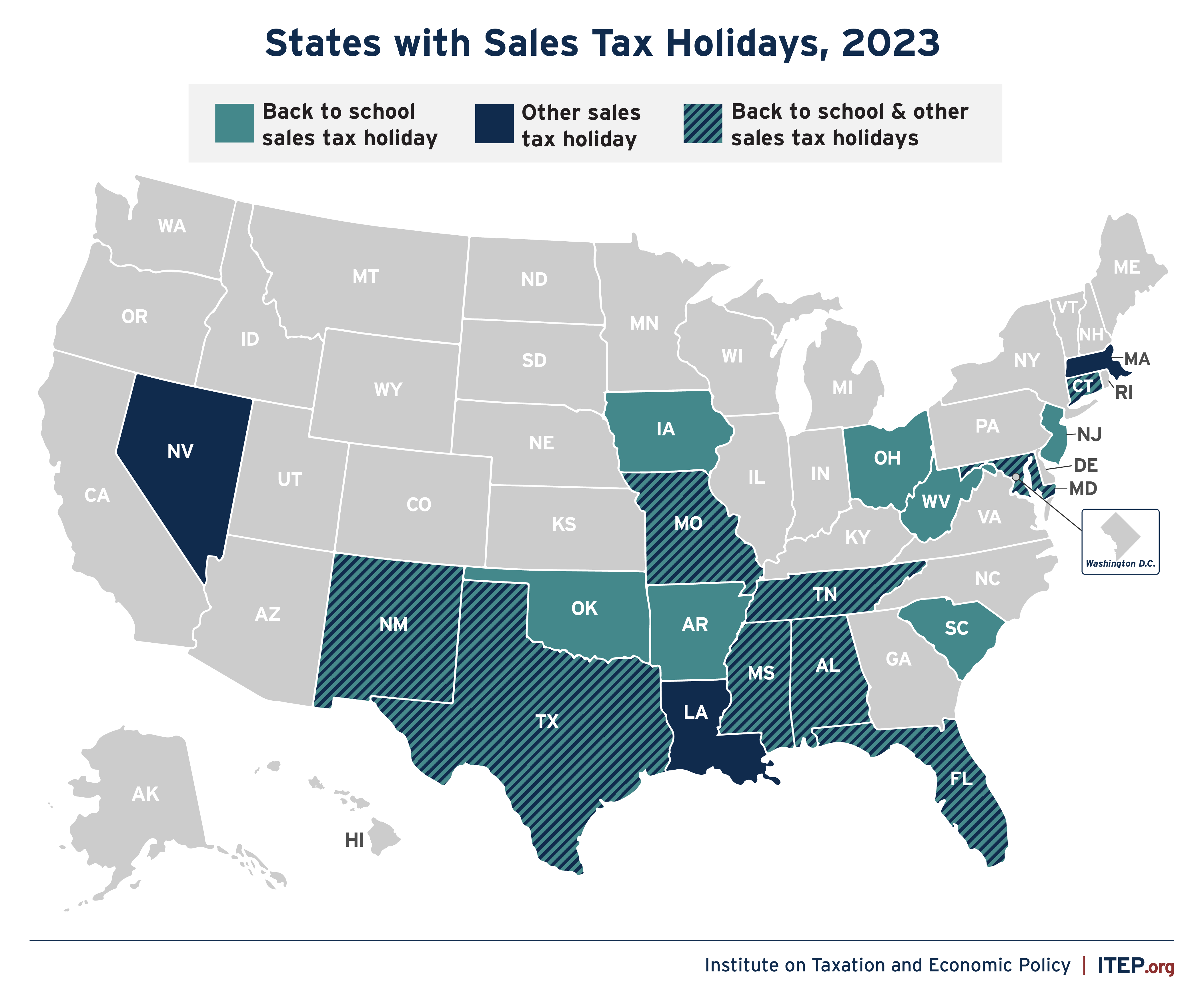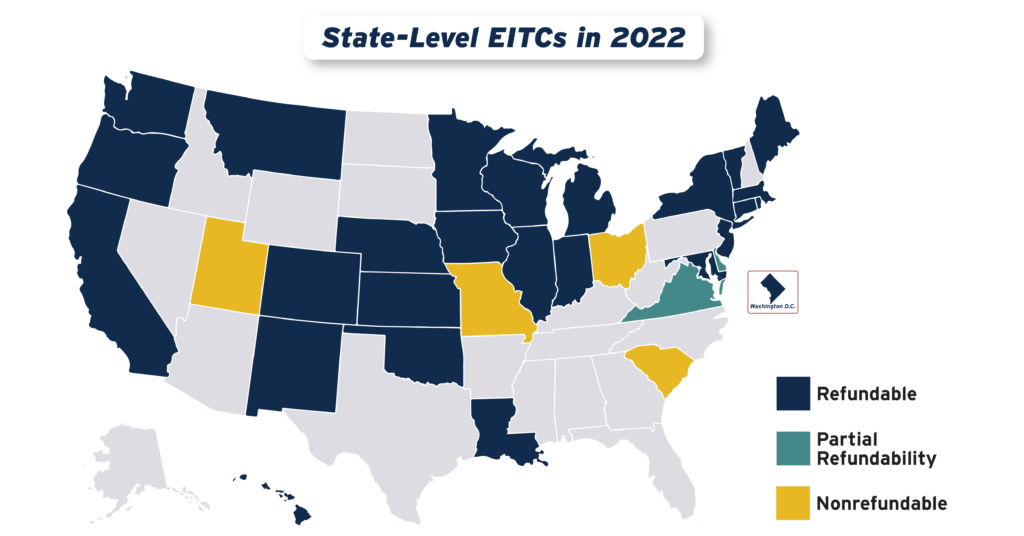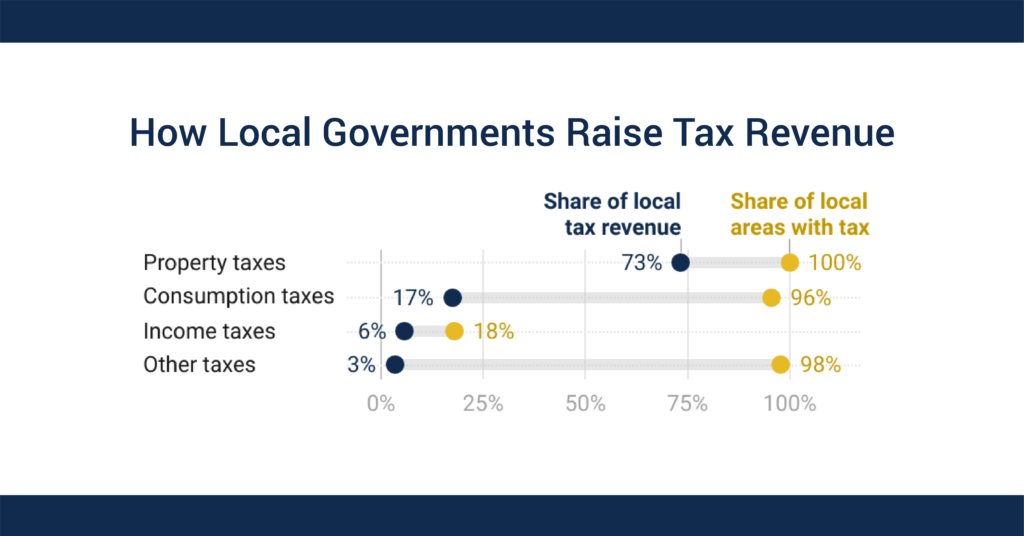Key findings
• Nineteen states had sales tax holidays on the books in 2023, down from 20 the previous year.
• These suspensions will cost states and localities nearly $1.6 billion in lost revenue this year, up from an estimated $1 billion just a year ago.
• Sales tax holidays are poorly targeted and too temporary to meaningfully change the regressive nature of a state’s tax system.
• Overall, the benefits of sales tax holidays are minimal while their downsides are significant.
Sales taxes are an important revenue source, making up close to half of all state tax revenues.[1] But sales taxes also are inherently regressive because low-income families spend a greater share of their income on goods and services subject to the tax. Lawmakers in many states have enacted “sales tax holidays” to temporarily suspend the tax on purchases of clothing, school supplies, and other items. These temporary exemptions may seem to lessen the regressive impacts of the sales tax, but their benefits are minimal while their downsides are significant—particularly as lawmakers have sought to apply the concept as a substitute for more meaningful, permanent reform or to arbitrarily reward people with specific hobbies or in certain professions.
The number of states with sales tax holidays on the books fell to 19 in 2023 from 20 in 2022. Yet even as slightly fewer states have them, they are estimated to cost much more. In 2023, sales tax holidays will cost states and localities nearly $1.6 billion in lost revenue, up from an estimated $1 billion just a year ago.
As states began their post-pandemic economic recoveries, they too began to shed temporary tax breaks for specific industries like restaurants (Connecticut and New Mexico) and tax-types, like gas and fuel taxes (Maryland, Connecticut, Georgia, New York, and Florida).
Several states eliminated or pared back their general sales tax holidays this year, while a few others expanded them. For example, lawmakers in Illinois and Virginia allowed their holidays to lapse without reauthorization, while Tennessee eliminated its holiday for firearms but expanded its grocery tax suspension from one month to three.
The most notable expansion, however, occurred in Florida, Sunshine State lawmakers made the sales tax exemption for diapers and baby clothes permanent and opted to create new categories of sales tax holidays, to the tune of more than $1 billion in lost revenue. This revenue loss is challenging for a state that already has no income tax and an extremely regressive tax code.
How Sales Tax Holidays Work
Sales tax holidays are temporary sales tax exemptions, usually applying to a small number of taxable items for a very limited period. These exemptions are typically timed to take place in August during the traditional back-to-school shopping season and offer breaks on school-related items such as clothing, school supplies, and computers. However, a few states exempt all taxable goods during the suspension. Most sales tax holidays last only two or three days, and almost all apply only to items below some specified price (for example, clothing items priced over $100 are generally not exempted).
In addition to traditional back-to-school weekend holidays, some states now have longer, broader exemptions with varying themes. Holidays for energy-efficient appliances and storm preparation materials are becoming increasingly common, for example. In 2023, there are also holidays being held for hunting season in Louisiana; small businesses in New Mexico; and for National Guard members and their families in Nevada.
History of Sales Tax Holidays
The notion of such a holiday was first introduced in 1980 when Ohio and Michigan opted to not tax the sale of automobiles for a period of time.[2] New York experimented with the current concept of sales tax holidays in 1996 but has since abandoned the policy. More than 20 states have enacted legislation at some point to temporarily suspend sales taxes, and proposals to extend the concept to more states and more types of purchases appear every year.
Many states have either repealed or temporarily ended sales tax holidays when facing significant revenue gaps. For example, lawmakers in Florida, Georgia, Maryland, Massachusetts, and the District of Columbia all canceled holidays during the height of the Great Recession. Although most reinstituted them afterward, Georgia and the District of Columbia’s holidays have not been revived. Louisiana, which once held three separate exemptions for back-to-school shopping, hunting season, and hurricane preparedness, started paring them back due to revenue shortfalls in 2016 and only recently revived its holiday for hunting season. Holidays in Illinois, New York, North Carolina, Vermont, and Wisconsin were also either short-lived or repealed.
Problems with Sales Tax Holidays
Policymakers tout sales tax holidays as a way for families to save money while shopping for “essential” goods. On the surface, this sounds reasonable. However, a two- to three-day sales-tax-free shopping spree for selected items does nothing to reduce taxes for low- and moderate-income taxpayers during the other 362 days of the year. Sales taxes are inherently regressive. In the long run, sales tax holidays leave a regressive tax system unchanged, and the benefits of these holidays for working families are minimal. These temporary exemptions also fall short because they are poorly targeted, reduce revenue, can easily be exploited, and create administrative difficulties.
Sales Tax Holidays Are Poorly Targeted
Since wealthier taxpayers also benefit from sales tax holidays, they offer less “bang for the buck” from a fairness perspective than more targeted tax breaks such as low-income sales tax credits[3], state earned income tax credits[4] or child tax credits.[5]
Wealthier taxpayers are often best positioned to benefit from a temporary exemption since they have more flexibility to shift the timing of their purchases to take advantage of the tax break—an option that isn’t available to families living paycheck to paycheck. Many low-income taxpayers spend most or all their income just getting by, which means that they also have less disposable income than wealthier taxpayers to spend when a tax-free period arrives. One study found households that earn more than $30,000 were likely to shift the timing of their clothing purchases to coincide with a sales tax suspension, but households earning less than $30,000 were not.[6] This phenomenon is more pronounced during recessions and economic downturns because low-income families or those who lose jobs see a much bigger hit to their incomes and generally recover more slowly. For families whose incomes are reduced or volatile for several years coming out of a recession, a temporary sales tax suspension doesn’t relieve the monthly challenges associated with a regressive tax system that depends on a sales tax.
Sales tax holidays are also not limited to state residents, but instead, extend to anybody who happens to be within the state’s borders at the time of the tax suspension, including tourists and people who live close to the border.
Lastly, though the holidays are often marketed as boons to local businesses, nearly all (New Mexico’s “Small Business Saturday” is an exception) apply to online purchases—even those shipped from other states—giving no advantage to locally owned businesses.
Sales Tax Holidays Reduce Revenue
In 2023, sales tax holidays will cost states and localities nearly $1.6 billion in lost revenue, up from an estimated $1 billion just a year ago.[7] This lost revenue will ultimately have to be made up elsewhere, either through painful spending cuts or increasing other taxes. Cities and counties—which often have few revenue options and must rely on sales taxes to fund important priorities like roads, parks, and police and fire protection[8]—rarely have a choice in the matter of sales tax holidays. Only Alabama, Mississippi, and Missouri allow localities to opt out of them.
Moreover, now that most online sales are subject to state and local sales taxes, the cost of these temporary suspensions has quickly grown. Online purchases, which are tax-exempt under all but one of these holidays, are a large and growing share of retail sales, and consumers can more easily time online purchases than brick-and-mortar purchases to coincide with a tax-free period.
Lawmakers’ recent experiments with longer and broader tax suspensions add to this growing price tag as well, heightening the need for a better understanding of why sales tax holidays are ineffective and how states can do more with less through more targeted policies.
Some Retailers Exploit Sales Tax Holidays
Retailers can also take advantage of the shift in the timing of consumer purchases by increasing their prices or watering down their sales promotions during the tax holiday. The influx of shoppers gives them economic incentive to do so, and the evidence suggests that they often do. One study of retailers’ behavior in Florida, for example, found that up to 20 percent of the price cut consumers thought they were receiving from the state’s sales tax holiday was reclaimed by retailers.[9]
Sales Tax Holidays Create Administrative Difficulties
Sales tax holidays create administrative difficulties for state and local governments and for retailers who must collect the tax. For example, exempting groceries requires a collection of well-defined government regulations to police the border between non-taxable groceries and taxable snack food – and only for a certain defined period of time. A temporary exemption for clothing (or for any other back-to-school item) requires retailers and tax administrators to wade through a similar quantity of complex administrative changes for an exemption that lasts only a few days. Further complexity can arise in states with local sales taxes when some localities opt not to participate in the holiday and consumers unexpectedly end up paying local sales taxes on their purchases.
Conclusion
Sales tax holidays are poorly targeted and too temporary to meaningfully change the regressive nature of a state’s tax system. Lawmakers must understand that they cannot resolve the unfairness of sales taxes simply by offering a short break from paying these taxes. If the long-term consequence of sales tax holidays is a higher sales tax rate, low-income taxpayers may ultimately be worse off because of these policies. Policymakers seeking to achieve greater tax fairness would do better to provide a permanent refundable low-income sales tax credit or prioritize state-level child tax credits or earned income tax credits which would do more to help families make ends meet and to offset the impact of the sales tax on low- and moderate-income taxpayers.
Endnotes
[1] U.S. Census Bureau, U.S. Census Bureau, 2021 Annual Survey of State Government Tax Collections.
[2] Janssen, C. B. (2012), (Un) Happy Holidays: The True Meaning of Sales Tax “Holiday” Policy, Loyola Consumer Law Review. 24: 411–440.
[3] Davis, Aidan (2019), Options for a Less Regressive Sales Tax in 2019. Institute on Taxation and Economic Policy. https://itep.org/options-for-a-less-regressive-sales-tax-2019/
[4] Davis, Aidan (2022), More States are Boosting Economic Security with Child Tax Credits in 2022. Institute on Taxation and Economic Policy. https://itep.org/more-states-are-boosting-economic-security-with-child-tax-credits-2022/
[5] Davis, Aidan (2022), Boosting Incomes and Improving Tax Equity with State Earned Income Tax Credits in 2022. Institute on Taxation and Economic Policy. https://itep.org/boosting-incomes-and-improving-tax-equity-with-state-earned-income-tax-credits-2022/
[6] Marwell, Nathan and Leslie McGranahan (2010), The Effect of Sales Tax Holidays on Household Consumption Patterns. Federal Reserve Bank of Chicago.
[7] ITEP survey of cost estimates from state tax expenditure reports, fiscal notes, revenue departments, and academic studies.
[8] Boardman, Andrew and Hendricks, Galen (2023), How Local Governments Raise Revenue—and What it Means for Tax Equity. Institute on Taxation and Economic Policy. https://itep.org/how-local-governments-raise-revenue-effects-on-tax-equity/
[9] Harper, R. K., Hawkins, R. R., Martin, G. S. and Sjolander, R. (2003), Price Effects around a Sales Tax Holiday: An Exploratory Study. Public Budgeting & Finance, 23: 108–113.






